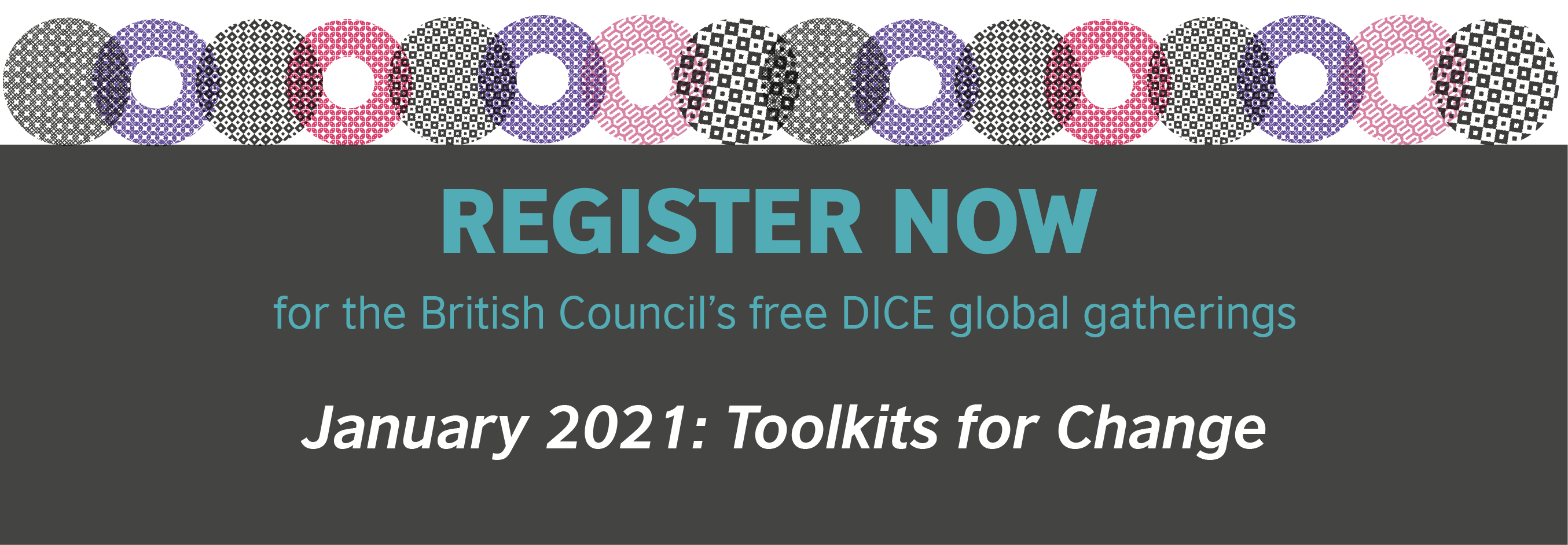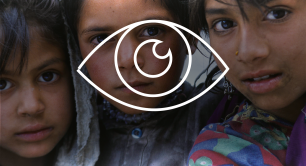Nurturing the power of creativity to deliver impact in Pakistan
Awareness of the contribution that social and creative entrepreneurs can make to Pakistan’s development could be about to take off, thanks to an experiment in helping people make their business dreams a reality.

Pakistan is a country with both massive potential and serious difficulties. It has 212m inhabitants, making it the sixth most populous country in the world. It is an incredibly young country – no less than 57% of the total population is under 25 years old. There are much-discussed problems of poverty, limited education opportunities, infrastructure and governance that hold back the country’s development. On the other hand, there are no shortages of proposed solutions to get the country on a better development path. Among them, an intriguing thought: could the creative ideas of some of the country’s less privileged communities somehow be harnessed to create positive and economically sustainable social impacts?
Three organisations have come together to try and answer that question through the British Council’s DICE Fund. A central role is played by SEED, a Pakistan-based non-profit organisation (the acronym stands for Social Education Environmental Development). Set up in 2012, SEED says its key aim is to improve the lives of ordinary people, largely through education and vocational training. It has partnered with two quite different institutions. The first is Karachi-based Indus Valley School of Arts and Architecture (IVS), which has been offering degree-level courses in fine art, design and architecture since 1990 and is one of the country’s top art institutions. Also involved is London-based Cockpit Arts, which describes itself as the UK’s only creative business incubator for craftspeople. Set up in 1986, Cockpit houses and supports over 150 independent creative businesses annually, ranging from makers of jewellery, to textiles, and to ceramics.
The experiment is already under way. As part of their collaborative project, two cohorts were recruited, with a particular focus on groups whose voices are frequently not heard in Pakistani society: women, young people, unemployed people, and marginalised or disabled people. Each cohort benefited from a four-month long series of workshops at IVS, run collaboratively by SEED and Cockpit Arts. Both cohorts exhibited their ideas at the end of the programme and two participants – one from each cohort – went on a study visit to London in early 2020.
Shaista Ayesha, head of product development at SEED, and David Crump, head of business incubation at Cockpit Arts, are enthusiastic about working together. They are trying to make at least three things line up together: first, the creative endeavour of individuals and groups; second, to ensure that such endeavours generate positive social impacts; and third, sustainable business models that will underpin ongoing innovation. Getting those three to fit together is no easy task. Even in a developed economy such as the UK, David says support for social entrepreneurs is pretty good, but support for creative entrepreneurs is “pretty woeful”. Shaista says SEED is very interested in “how to work this model of social and creative better”.
Intriguing initial ideas
The first cohort has generated intriguing ideas. One participant had developed a prototype for a backpack-cum-sleeping bag that could be used by itinerant workers. Another very young social entrepreneur has created a doll linked to an environmental campaign supporting her vision of a cleaner, greener Pakistan. A fine artist is working with stones and furniture to create visual images representing stories in Urdu literature. There are also people designing leather products, retail packaging and cultural archives.
The workshops are designed to make you think about a business model. They should strengthen your concept of how to market your product better, how to talk to your investors better, how to think about your value proposition
Of course, people all around the world have creative impulses and nurture dreams for future projects. The unfortunate truth however is that for all sorts of reasons, including social and educational exclusion, many of these dreams are never realised. Altering the balance just a few degrees, to help make more initiatives succeed, could make a big difference.
For that to happen, individuals and communities need the right tools. What the collaborative SEED/IVS/Cockpit project aims to do is to rigorously train this initially tiny group of beneficiaries to take the next step towards making its dreams a reality. They have called the project RISE (Raising Innovative Social Enterprises).
Shaista notes that a lot of creative people are “fuzzy” about running a business. She says: “The workshops are designed to make you think about a business model. They should strengthen your concept of how to market your product better, how to talk to your investors better, how to think about your value proposition.” Enthusiasm was certainly high. David was impressed by the commitment of the beneficiaries who battled the disruption of heavy rains in Karachi to attend the sessions at IVS.
Promising early signs
Success will be measured at least in part by whether the projects pursued by the two cohorts of beneficiaries are able to survive and thrive. While uncertainties lie ahead, and the effect of the Covid-19 pandemic are impossible to calculate, initial signs were very promising. Shaista describes the moment that one beneficiary, who hadn’t been to university and who had no previous business experience, made the emotional transition from thinking about his project purely as a part-time activity or hobby to saying “this is what I want to do full time, this is how I want to help my community, and this is the plan I will move forward with”. She described that single moment as a “big win” for the project team.
Project partners have had to be flexible and adapt. The workshops were in themselves a learning process for the trainers, who built up mutual trust as they went along. “We are designing this together, we are going to learn as we go along, when you are open to making mistakes and learning, you know you have safety in a collaboration, and it becomes very easy to work together,” says Shaista.
Both organisations say what has emerged is a “co-authored” approach, which can be further developed. David says that what links the creative mind and the social impact mind is that they are both “frames driven by passion”. He thinks the collaboration has created a vehicle to answer a need that hasn’t yet fully manifested itself in Pakistani society. Yet the change could be on its way. Awareness of the contribution that social and creative entrepreneurs can make to the country’s development could be about to take off.
The British Council and the DICE Collaborators (including the organisations featured in this article) invite you to join them in a series of conversations about reducing inequalities, collaborating across borders and oceans, and operating impact-focused enterprises at a time of profound change. These free, monthly live events are co-hosted by impact-focused organisations in Brazil, Egypt, Indonesia, Pakistan and South Africa and their partners in the UK, and draw on their experience of collaborating across borders to address challenges such as youth unemployment, environmental catastrophe, disability rights, and gender inequality in local communities. Find out more and register here.
The DICE Series tells the stories of collaborations which brought together enterprise development experts from the UK with specialists working in five emerging economies – Brazil, Egypt, Indonesia, Pakistan and South Africa – during 2019-20 with the aim of addressing entrenched issues of economic and social exclusion. Read more about the British Council’s DICE programme here.





